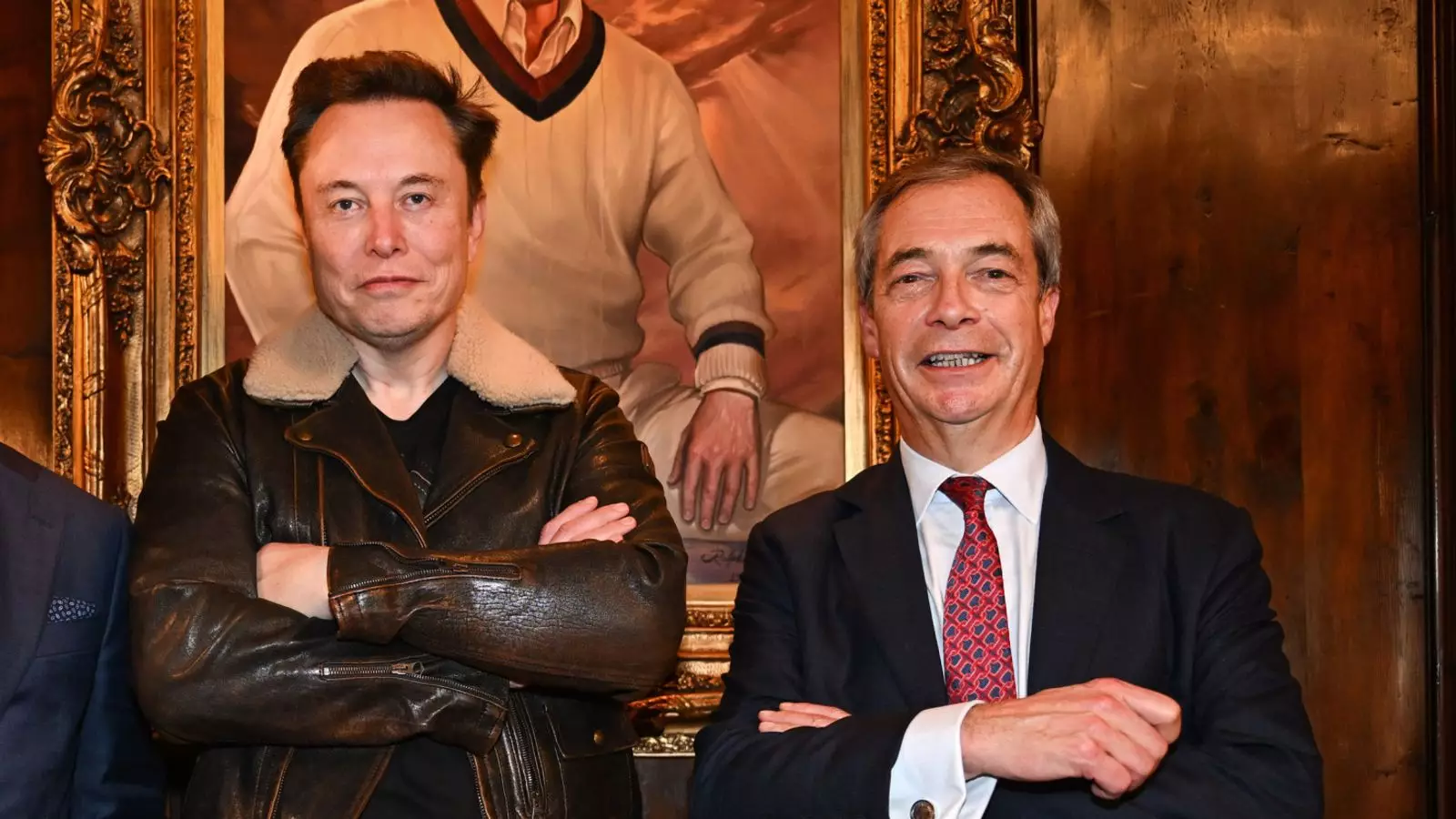The proposal to restrict foreign donations to UK political parties is a pressing issue that resonates deeply within the British political landscape. Recent discussions among government ministers reveal a growing awareness of the potential dangers posed by unlimited foreign funding. Currently, UK political parties can accept donations from any company registered in the UK, which opens the door for foreign entities to funnel indirect contributions through seemingly legitimate channels. This loophole undermines the integrity of British democracy and erodes public trust in political institutions. It is a situation that demands immediate attention and reform.
One of the critical aspects of this discourse is the sheer scale of the potential foreign influence, especially as exemplified by tech billionaire Elon Musk’s rumored $100 million donation to Reform UK. This unprecedented amount, if realized, would dwarf all political donations in the UK this year and position Musk as a significant player in British politics. The prospect of such financial influence raises valid questions regarding the sovereignty of our democratic processes and the need to safeguard our political arena from outside interference.
The Unpopularity of Foreign Donations
According to polling from Sky News, the general public sentiment is clear: foreign donations are overwhelmingly unwelcome. A staggering 77% of the respondents believe that non-registered foreign nationals should be barred from contributing to political parties. This sentiment persists even among voters of parties that might benefit from such donations. Among Reform UK supporters, a significant 73% agree that foreign financial influence should not enter British politics. This popular consensus highlights a crucial point: the call for reform is not merely an elite concern but a grassroots imperative.
The outcry against foreign donations is not just rooted in the desire for fairness in political campaigning; it reflects a broader desire for integrity in governance. Taxpayers rightfully expect their elected officials to be accountable to them, rather than to foreign interests. The current system fosters distrust and leads to suspicions about who truly holds power behind the scenes. The principal challenge lies not just in curtailing foreign influence but in ensuring that the mechanisms of political financing are transparent and enlisted in the service of the public good.
Government Response and Proposed Reforms
The government’s strategy to address these concerns includes plans for an improved regulatory framework around political donations. One proposed change involves setting donation limits based on a company’s profit or revenue, effectively gating contributions from foreign entities based on their financial viability in the UK landscape. This would prevent foreign donors from exploiting companies that do not have substantial operations within the country, thereby closing a significant loophole.
Moreover, the introduction of enhanced scrutiny measures for unincorporated associations is also being considered, aiming to bolster the integrity of political funding. While these measures appear proactive, they should be approached with cautious optimism. Past legislative attempts at reform have often floundered under bureaucratic inertia or have been perceived as superficial. The real test of these proposed reforms will be their execution and enforcement. Significantly, these changes must also be accompanied by a robust public communication strategy that informs voters of these shifts and instills confidence in the newfound protections.
Transparency International’s Warnings
Compounding the urgency of these reforms is the alarming data from Transparency International, which reveals that nearly £1 in every £10 donated to parties and politicians from 2001 to 2024 originated from obscure or dubious sources. This staggering figure illustrates a systemic weakness within the current framework, suggesting that money remains murky and its sources obscured.
The potential impact on public trust cannot be overstated. The presence of anonymous foreign money creates an atmosphere of suspicion, undermining the foundations of democracy itself. The proposed reforms could enhance transparency and accountability in political funding, ensuring that the voices of the electorate are amplified rather than drowned out by foreign interests. It is imperative that the UK leads by example, demonstrating a commitment to clean governance and a rejection of the corrosive influence of unregulated financial contributions.
As the political landscape shifts, it is essential that policymakers prioritize public sentiment and take definitive action against foreign political donations. The voices of the 77% of the population calling for change must resonate within the hallowed halls of Westminster. Only by implementing robust measures to restrict foreign funding can the UK hope to reclaim the trust of its citizens and safeguard the integrity of its democratic processes. It is time for action, transparency, and accountability in British politics.

